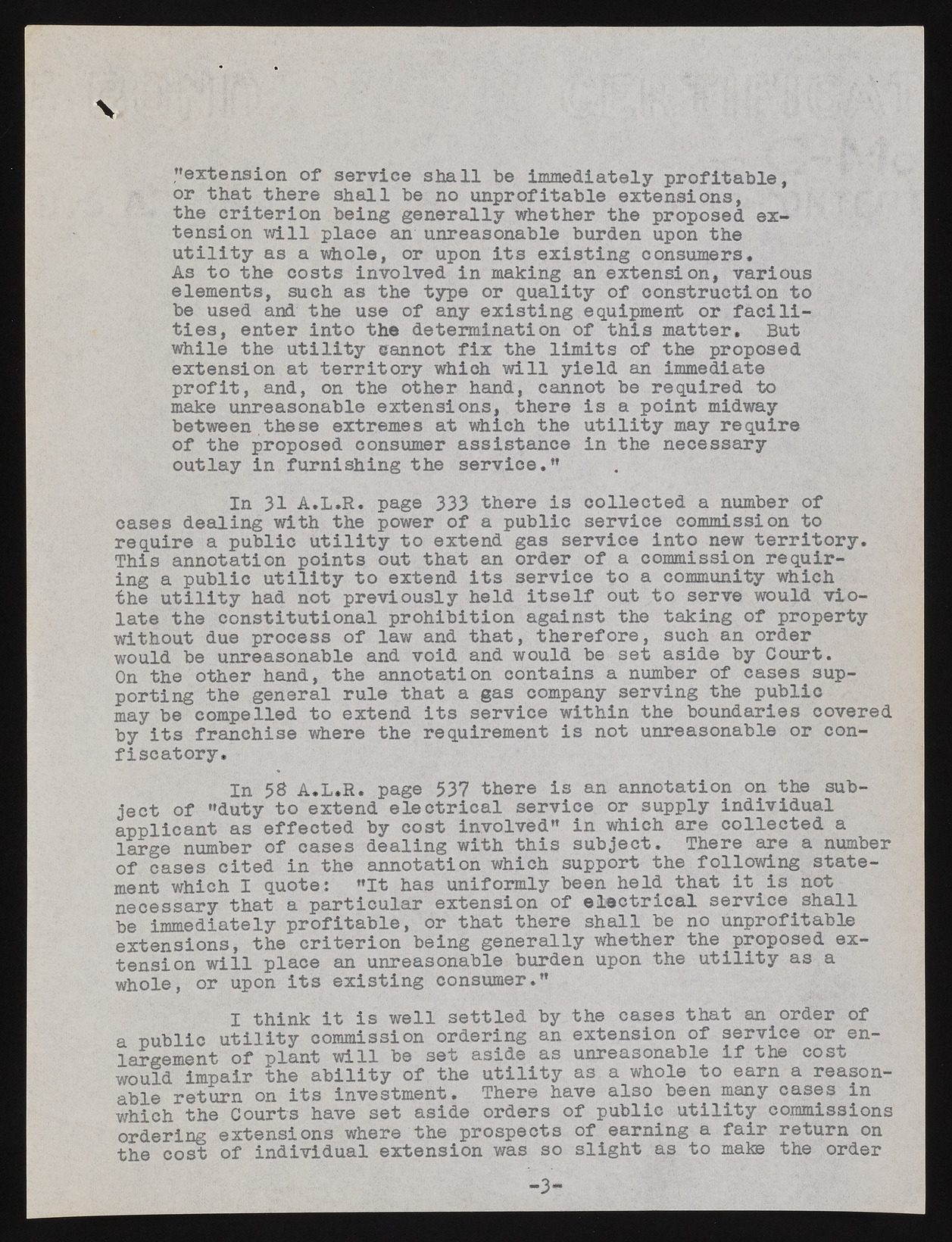Copyright & Fair-use Agreement
UNLV Special Collections provides copies of materials to facilitate private study, scholarship, or research. Material not in the public domain may be used according to fair use of copyrighted materials as defined by copyright law. Please cite us.
Please note that UNLV may not own the copyright to these materials and cannot provide permission to publish or distribute materials when UNLV is not the copyright holder. The user is solely responsible for determining the copyright status of materials and obtaining permission to use material from the copyright holder and for determining whether any permissions relating to any other rights are necessary for the intended use, and for obtaining all required permissions beyond that allowed by fair use.
Read more about our reproduction and use policy.
I agree.Information
Digital ID
Permalink
Details
More Info
Rights
Digital Provenance
Publisher
Transcription
V "extension of service shall be immediately profitable, or that there shall be no unprofitable extensions, the criterion being generally whether the proposed extension will place an unreasonable burden upon the utility as a whole, or upon its existing consumers* As to the costs involved in making an extension, various elements, such as the type or quality of construction to be used and the use of any existing equipment or facilities, enter into the determination of this matter. But while the utility cannot fix the limits of the proposed extension at territory which will yield an immediate profit, and, on the other hand, cannot be required to make unreasonable extensions, there is a point midway between these extremes at which the utility may require of the proposed consumer assistance in the necessary outlay in furnishing the service." In 31 A.L.R. page 333 there is collected a number of cases dealing with the power of a public service commission to require a public utility to extend gas service into new territory. This annotation points out that an order of a commission requiring a public utility to extend its service to a community which the utility had not previously held itself out to serve would violate the constitutional prohibition against the taking of property without due process of law and that, therefore, such an order would be unreasonable and void and would be set aside by Court. On the other hand, the annotation contains a number of cases supporting the general rule that a gas company serving the public may be compelled to extend its service within the boundaries covered by its franchise where the requirement is not unreasonable or confiscatory. In 58 A.L.R. page 537 there is an annotation on the subject of "duty to extend electrical service or supply individual applicant as effected by cost involved" in which are collected a large number of cases dealing with this subject. There are a number of cases cited in the annotation which support the following statement which I quote: "It has uniformly been held that it is not necessary that a particular extension of electrical service shall be immediately profitable, or that there shall be no unprofitable extensions, the criterion being generally whether the proposed extension will place an unreasonable burden upon the utility as a whole, or upon its existing consumer." I think it is well settled by the cases that an order of a public utility commission ordering an extension of service or enlargement of plant will be set aside as unreasonable if the cost would impair the ability of the utility as a whole to earn a reasonable return on its investment. There have also been many cases in which the Courts have set aside orders of public utility commissions ordering extensions where the prospects of earning a fair return on the cost of individual extension was so slight as to make the order -3-

